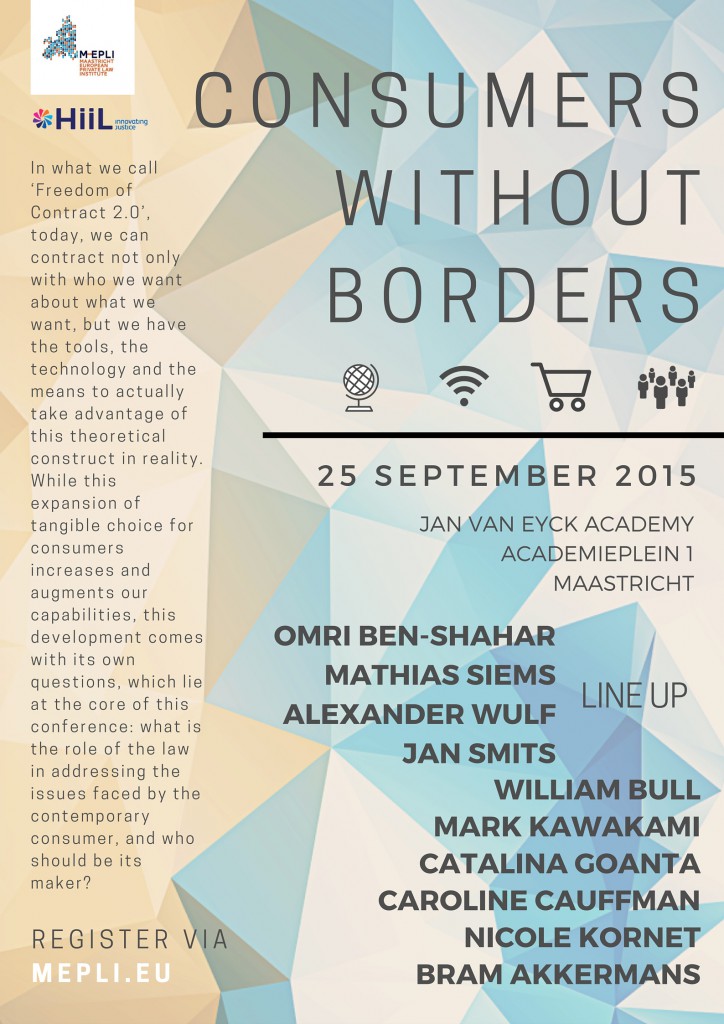‘Consumers Without Borders’ Conference, Maastricht, 25 September 2015

What is the role of the law in addressing the issues faced by the contemporary consumer, and who should be its maker?

In an ever-globalizing world, consumers are faced with fewer and fewer physical borders: whether this entails shopping online beyond their own national jurisdictions, or actually travelling from one jurisdiction to another in the era of low-cost flights and budget holidays. With more international consumers on the move – literally or in the virtual world – law faces inherent challenges: should these developments be the drivers of a new wave of legal globalization, and if so, what would this look like?
In what we call ‘Freedom of Contract 2.0’, today, we can contract not only with who we want about what we want, but we have the tools, the technology and the means to actually take advantage of this theoretical construct in reality. While this expansion of tangible choice for consumers increases and augments our capabilities, this development comes with its own questions, which lie at the core of this conference: what is the role of the law in addressing the issues faced by the contemporary consumer, and who should be its maker?
PROGRAMME
10:00-10:30 Coffee & Registration
10:30-10:45 Introduction: Consumers Without Borders
Opening remarks by Jan Smits
10:45-12:15 Session 1: Consumer-Based Solutions
Chaired by Bram Akkermans
Mark Kawakami: Collaborative Consumer Protection: Consumers Empowering Consumers
Omri Ben-Shahar: The Irrelevance of National Consumer Contract Law in Cross Border Trade
12:15-13:15 Lunch
13:15-14:45 Session 2: Mandatory Solutions
Chaired by Caroline Cauffman
Catalina Goanta: Numerical Comparative Law: Distance Selling, Consumer Rights and the Convergence Index
Mathias Siems: Measuring Mandatory Laws and other Legal Institutions
14:45-15:00 Break
15:00-16:30 Session 3: Optional Solutions
Chaired by Nicole Kornet
William Bull: Optional Instruments as an Alternative to Mandatory Solutions
Alexander Wulf: Case Study on Optional Instruments: The Example of Optional Contract Codes
16:30-16:55 General Discussion
16:55-17:00 Closing
Concluding remarks by Jan Smits
17:00-18:00 Drinks
Register HERE.